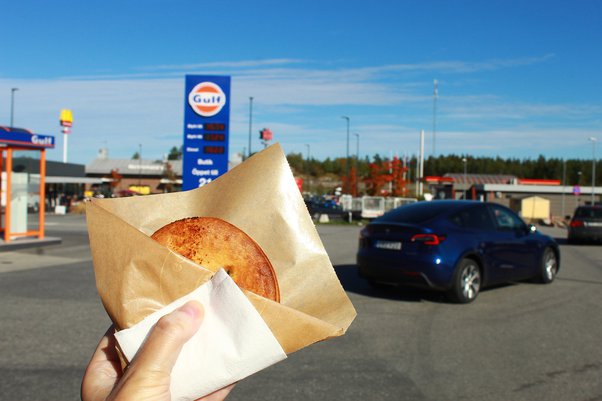The biggest health concern with eating at a petrol station is exposure to benzene, a chemical found in gasoline. Benzene is a known carcinogen, and long-term exposure can increase the risk of leukemia and other blood cancers.

Here’s how exposure to benzene at a petrol station can happen:
- Inhalation: Benzene vapors are released from gasoline pumps, and you can breathe them in while filling up your car or standing near the pumps.
- Skin absorption: Benzene can also be absorbed through your skin if you get it on your hands and then touch your food.
- Contaminated food: In some cases, food stored or prepared near gasoline pumps can become contaminated with benzene. This is more of a concern for petrol station workers than for most customers.
Studies have shown that people who live near petrol stations or who work at them have an increased risk of some health problems, including:
- Cancer
- Aplastic anemia (a condition that reduces the body’s ability to produce red blood cells)
- Acute myeloid leukemia (AML)
- Non-Hodgkin’s lymphoma
However, the risk of these problems is relatively low for most people. The amount of benzene you are exposed to at a petrol station is usually very small.
Here are some tips to reduce your exposure to benzene at a petrol station:
- Avoid eating while you are pumping gas.
- Wash your hands thoroughly with soap and water after filling up your car.
- Avoid storing food near gasoline pumps.
If you are concerned about your exposure to benzene, talk to your doctor.

Leave a Reply